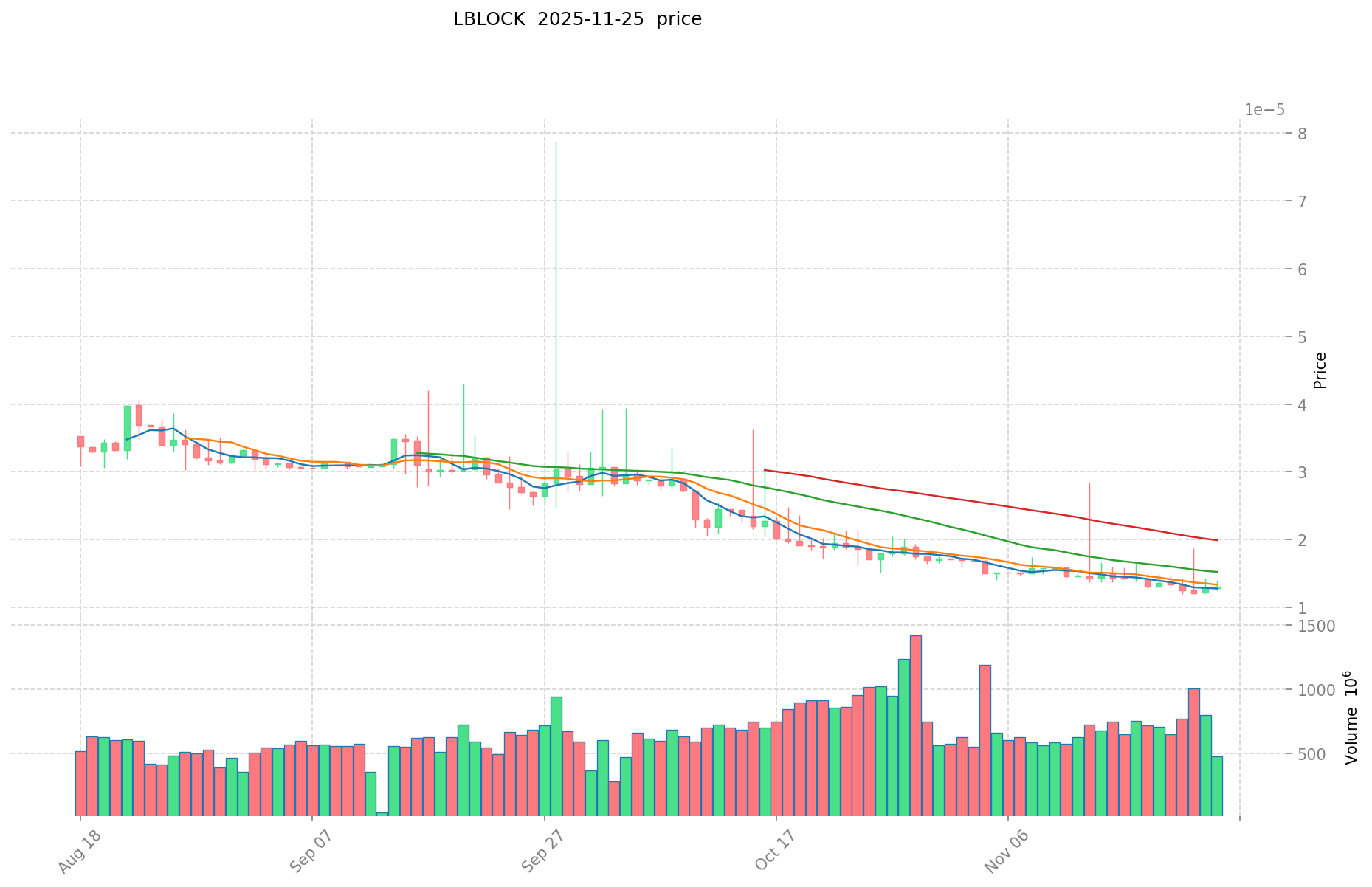What is LBLOCK: The Rising Star of Blockchain Gaming and Betting
Lucky Block's Positioning and Significance
In 2022, Lucky Block (LBLOCK) was launched as a leading NFT competitions platform, aiming to revolutionize the way users engage with digital assets and participate in contests.
As a pioneer in the NFT-based competition space, Lucky Block plays a crucial role in the intersection of NFTs and gamification, offering unique opportunities for users to win prizes and earn rewards through NFT ownership.
As of 2025, Lucky Block has established itself as a niche player in the NFT and gaming sectors, with an active community of NFT holders and competition participants. This article will delve into its technological architecture, market performance, and future potential.
Origins and Development History
Birth Background
Lucky Block was created in 2022 to address the growing demand for innovative ways to utilize NFTs beyond simple collectibles. It emerged during the NFT boom, aiming to provide tangible value and engagement opportunities for NFT holders through its competition platform.
Lucky Block's launch opened up new possibilities for NFT enthusiasts and those seeking novel forms of digital engagement and rewards.
Important Milestones
- 2022: Platform launch, introducing NFT-based competitions.
- 2025: Continued operation and development of the NFT competitions ecosystem.
With support from its community and development team, Lucky Block continues to refine its platform, enhancing user experience and expanding its range of competitions and rewards.
How Does Lucky Block Work?
Decentralized Control
Lucky Block operates on a decentralized network, leveraging blockchain technology to ensure transparency and fairness in its competitions. This approach eliminates the need for traditional centralized lottery or competition systems, giving users more control and trust in the process.
Blockchain Core
Lucky Block utilizes blockchain technology to record entries, results, and rewards distribution. This creates an immutable ledger of all activities on the platform, ensuring transparency and preventing manipulation of competition outcomes.
Ensuring Fairness
Lucky Block employs smart contracts to automate and secure the competition process. These contracts govern the rules of each competition, randomly select winners, and distribute prizes, ensuring a fair and tamper-proof system for all participants.
Secure Transactions
Lucky Block uses cryptographic techniques to secure transactions and NFT ownership:
- Private keys are used to sign transactions and prove ownership of NFTs
- Public keys serve as addresses for receiving NFTs and rewards
This mechanism ensures the security of assets and maintains the integrity of the competition platform.
LBLOCK's Market Performance
Circulation Overview
As of November 25, 2025, LBLOCK's circulating supply is 100,000,000,000 tokens, which is equal to its total supply of 100,000,000,000.
Price Fluctuations
LBLOCK reached its all-time high of $0.00974554 on February 18, 2022.
Its all-time low was $0.000000067315, occurring on August 11, 2025.
These fluctuations reflect market sentiment, adoption trends, and external factors.
Click to view the current LBLOCK market price

On-Chain Metrics
- Daily Transaction Volume: $4,824.66 (indicating network activity)
- Active Addresses: 3,694 (reflecting user engagement)
LBLOCK Ecosystem Applications and Partnerships
Core Use Cases
LBLOCK's ecosystem supports various applications:
- NFT Competitions: Lucky Block platform, offering rewards for holding NFTs and participating in contests.
- GameFi: Lucky Block integrates gaming elements with blockchain technology.
Strategic Partnerships
LBLOCK has not disclosed any specific strategic partnerships at this time.
Controversies and Challenges
LBLOCK faces the following challenges:
- Market Volatility: Significant price fluctuations as evidenced by historical high and low prices.
- Competition: Pressure from other NFT and gaming platforms in the cryptocurrency space.
These issues have sparked discussions within the community and market, driving LBLOCK's continuous innovation.
LBLOCK Community and Social Media Atmosphere
Fan Enthusiasm
LBLOCK's community shows some activity, with 3,694 holders as of the current date.
On X platform, related posts and hashtags (such as #LBLOCK) occasionally gain traction.
Social Media Sentiment
Sentiment on X appears mixed:
- Supporters praise LBLOCK's NFT competition model and potential for rewards.
- Critics may focus on price volatility and market performance.
Recent trends show a decline in price over various timeframes.
Hot Topics
X users discuss LBLOCK's NFT competitions, token price movements, and potential for gaming rewards.
More Information Sources for LBLOCK
- Official Website: Visit Lucky Block official website for features, use cases, and latest updates.
- X Updates: On X platform, Lucky Block uses @luckyblockcoin, as of November 25, 2025. Posts likely cover NFT competitions, community events, and platform updates.
LBLOCK Future Roadmap
No specific future roadmap is provided in the given information.
How to Participate in LBLOCK?
- Purchase Channels: Buy LBLOCK on Gate.com
- Storage Solutions: Use compatible wallets for secure storage
- Participate in Competitions: Engage with the Lucky Block platform for NFT competitions
- Community Engagement: Follow official social media channels for updates and community activities
Summary
LBLOCK, through blockchain technology, is redefining the intersection of NFTs and competitive gaming, offering rewards for NFT holders and competition participants. Its community of holders and unique platform position it distinctly in the cryptocurrency landscape. Despite facing challenges like price volatility, LBLOCK's innovative NFT competition model gives it a unique place in the decentralized technology future. Whether you're a newcomer or an experienced player, LBLOCK presents an interesting opportunity in the NFT and gaming sector of cryptocurrencies.
FAQ
What does block the Company do?
Block is a financial services company focused on economic empowerment. It operates globally with over 10,000 employees and raised $2.2 billion in its last funding round in September 2025.
What does "block" mean in slang?
In slang, "block" often refers to a person's head. It's commonly used in phrases like "knock someone's block off," meaning to hit someone's head or face.
What is block pay?
Block pay is a fixed work schedule for a set period, typically full-time, with agreed-upon hours and compensation. It ensures consistent work commitments and pay for employees.
What is a block in computer?
A block in computer is a fixed-size unit of data storage on hard drives or other storage devices. It helps organize and manage data efficiently.
Share
Content